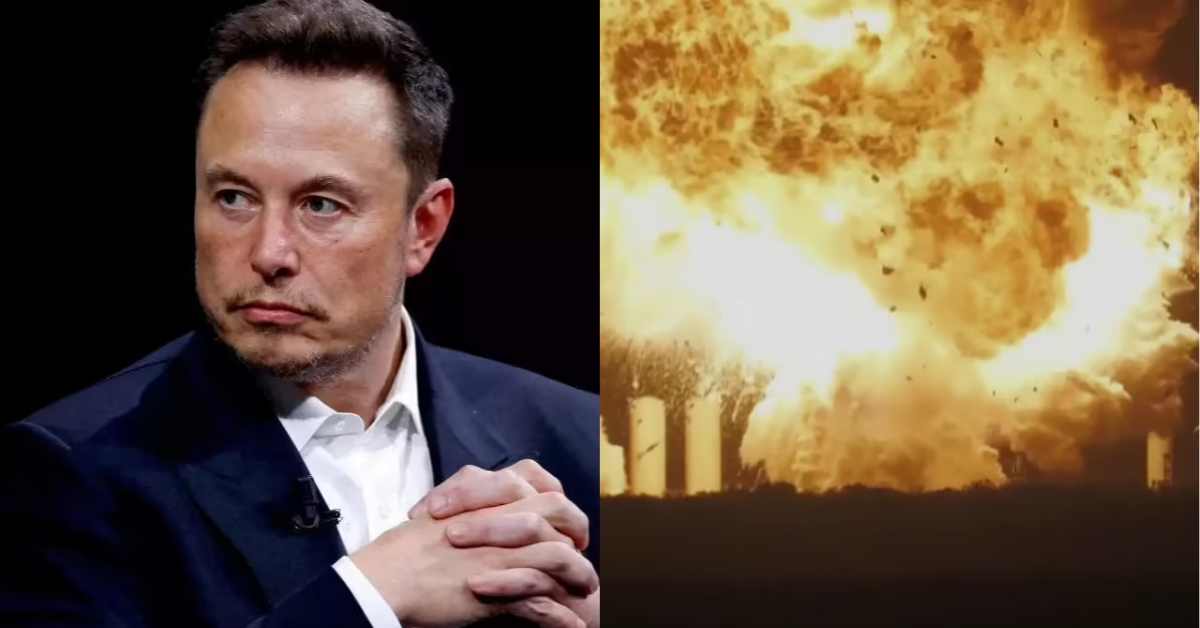Texas, USA – A massive explosion rocked SpaceX’s Starbase facility in Boca Chica, Texas, as a Starship rocket prototype-Ship 36-detonated during ground testing. While no injuries were reported, the blast completely destroyed the vehicle and once again cast doubt on the timeline and technical readiness of Elon Musk’s ambitious Mars colonization plans.
Failure After Failure
The explosion occurred around 11 PM on June 18 (local time), during a fueling sequence for a static fire test. According to initial reports, a “major anomaly” involving a Composite Overwrapped Pressure Vessel (COPV) in the fuel system triggered the incident.
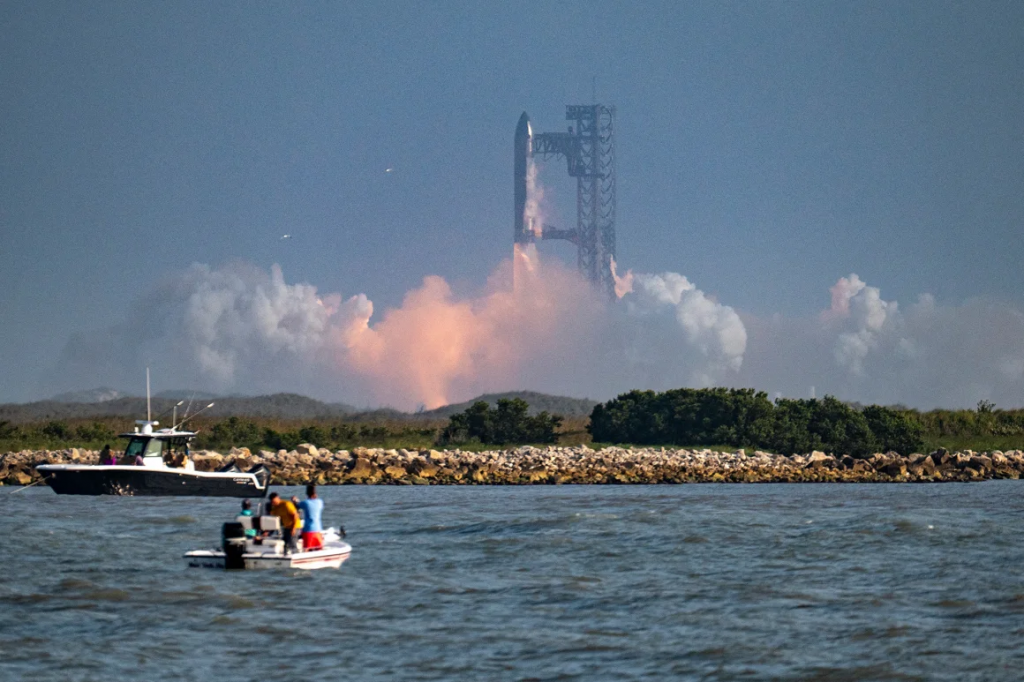
This marks the fourth Starship failure in just the first half of 2025, following similar setbacks in January, March, and May. While SpaceX insists failures are part of its development philosophy, the repeated mishaps raise concerns about whether the company can stay on schedule-and whether the Starship system is even close to being human-rated.
A Race Against Time
Elon Musk has long spoken openly about his desire to build a self-sustaining city on Mars, aiming to transport one million people to the Red Planet over the next few decades. The Starship rocket, the most powerful and ambitious spacecraft ever built, is at the core of this vision.
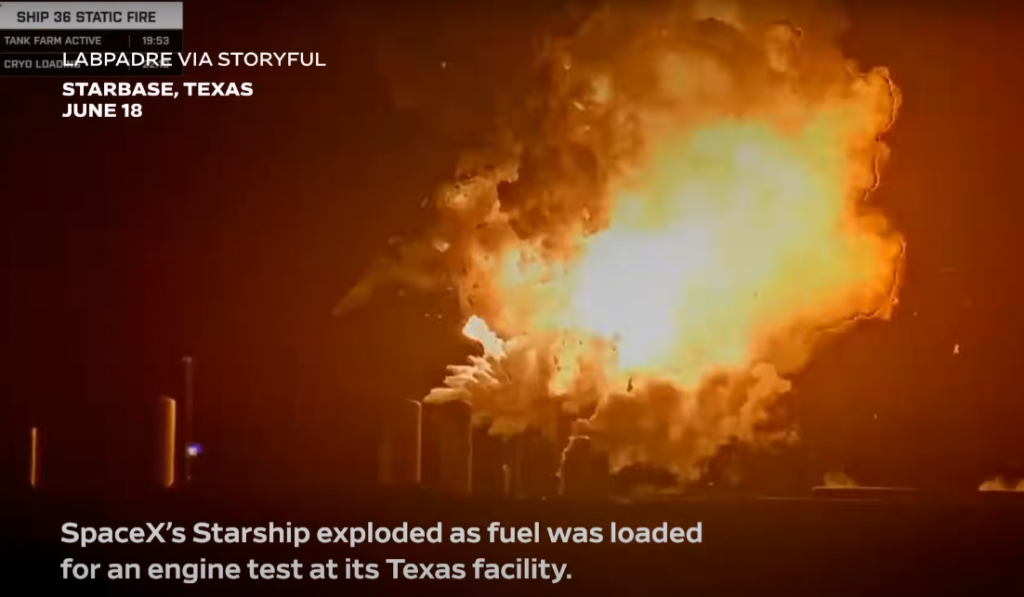
However, a series of catastrophic failures, the complexity of deep space travel, and numerous unsolved technical challenges are making that dream seem increasingly distant. Unlike NASA, which has penciled in a manned Mars mission for the mid-2030s, Musk has expressed hopes of sending humans there as early as 2029-a timeline that now appears highly optimistic.
The “Fail Fast” Philosophy: A Double-Edged Sword?
SpaceX has championed a “fail fast, learn fast” approach, which has undeniably accelerated innovation. Yet, with each explosion causing millions of dollars in damage and delaying further progress, critics are beginning to question whether this strategy is sustainable-especially for crewed missions.
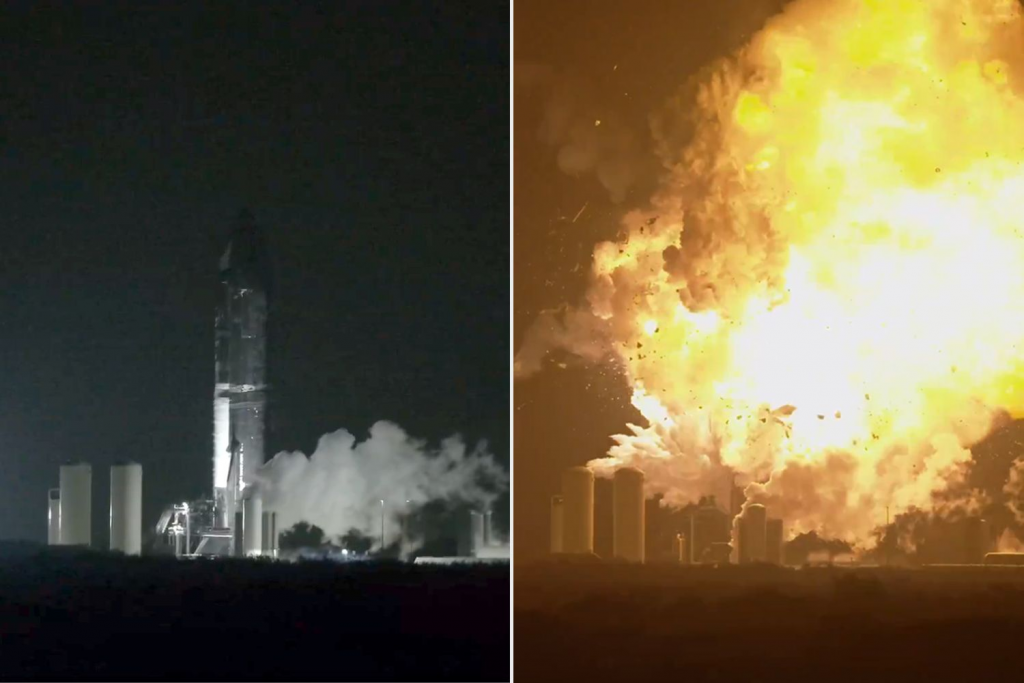
“This philosophy works fine when you’re blowing up test hardware on the ground,” said Prof. John Logsdon, former director of the Space Policy Institute at George Washington University. “But when astronauts are involved, the stakes are entirely different.”
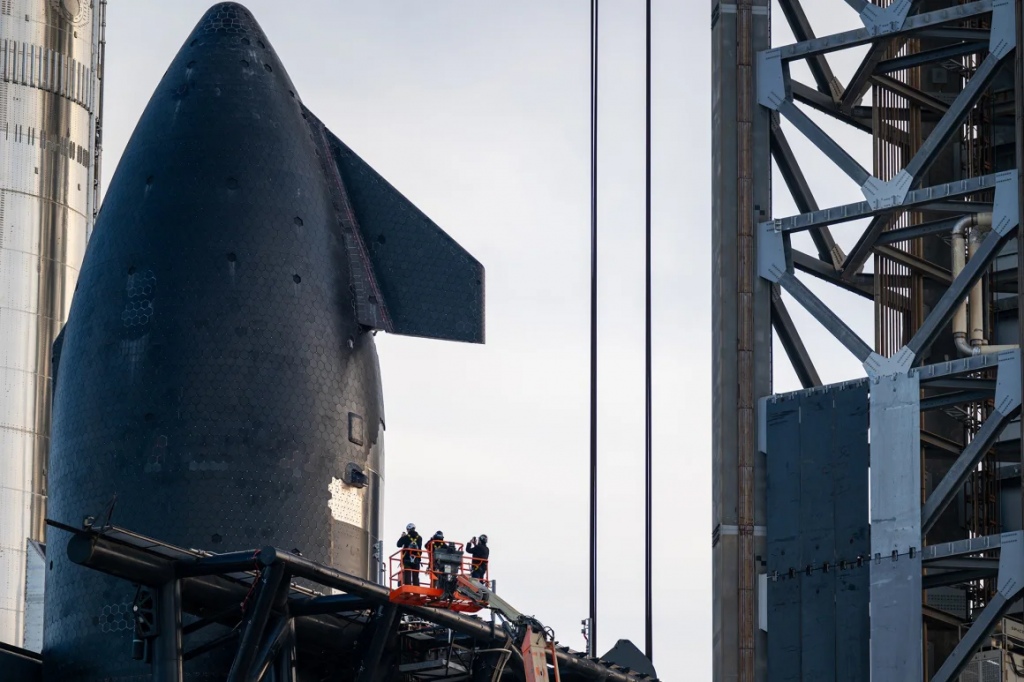
Confidence Shaken, But Not Lost
Despite recent failures, SpaceX remains the only private company that has:
- Successfully reused rockets,
- Launched astronauts to the International Space Station,
- Built and deployed a global satellite internet network (Starlink).
Elon Musk responded to the latest explosion by calling it “a valuable learning experience” and assured the public that SpaceX would “come back stronger.”
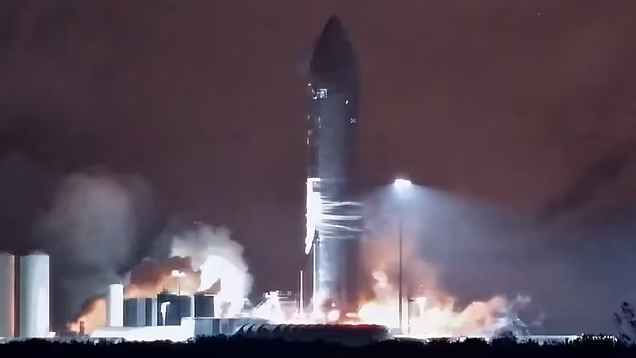
Conclusion: The Journey to Mars Isn’t Canceled – But It’s Clearly Delayed
If any company can turn repeated failure into eventual triumph, it’s SpaceX. But the road to Mars is proving to be longer and more perilous than even Elon Musk anticipated. Unless SpaceX refines its risk management and technical execution, the dream of humans living on Mars could be pushed back by decades.

